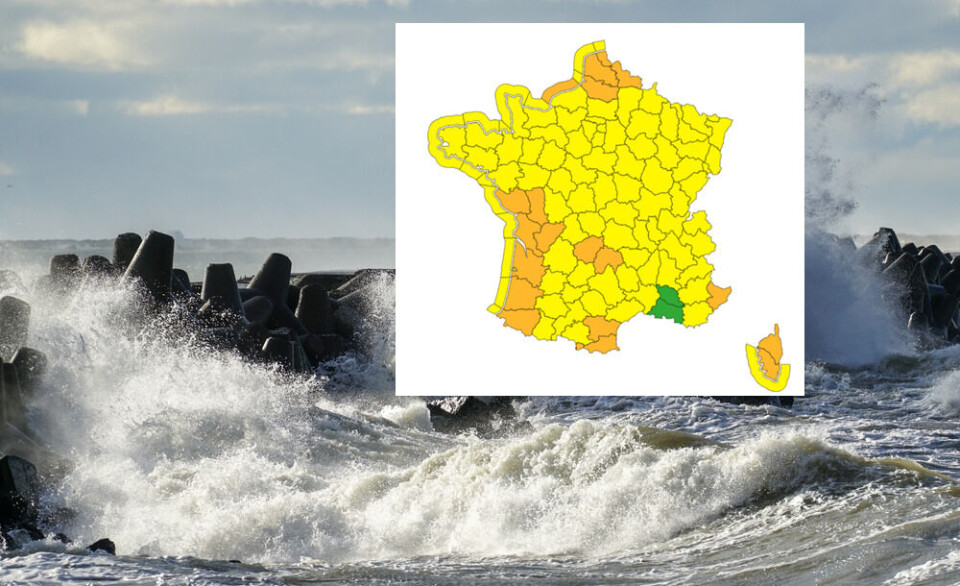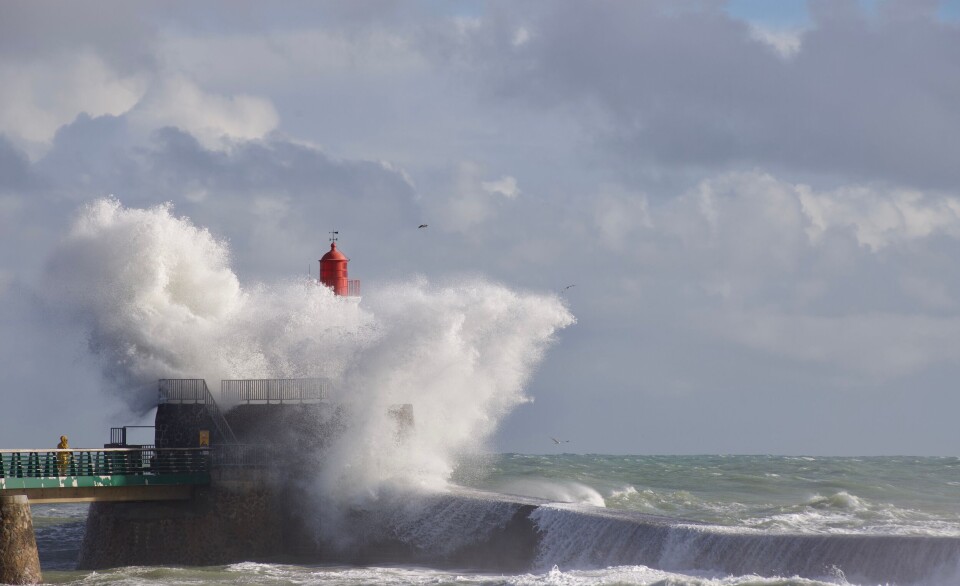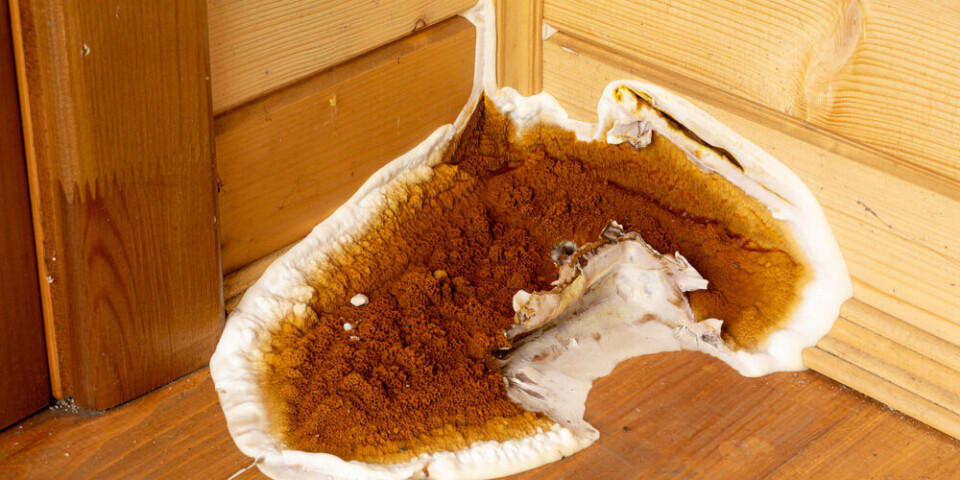Barking dogs, extensions that overlook properties and bonfires are among the most common disputes among neighbours in France.
The list was compiled by consumer magazine, 60 Millions de Consommateurs, based on responses sent in by readers.
Noise, especially barking dogs, is at the top of the complaints list.
Next are problems caused by building extensions overlooking properties. This is a common issue as building permissions in France look only at the urban planning requirements under administrative law, and not other aspects which fall under civil law, such as whether the extension will block a neighbour's sunlight.
Read more: French village rallies behind farmer told to quieten her chickens
Bonfires and barbecues
The advice is to look carefully at these aspects when you see a building notice on your neighbour’s property.
Bonfires, or the use of garden incinerators, are also a common complaint in urban areas, especially when people burn leaves in autumn.
Read more: Explained: French garden rules on cleaning, bonfires, planting and more
Surprisingly, there are many complaints, too, about the smell of cooking meat from neighbours’ barbecues. The advice given in this case is to put up with it if it remains only an occasional nuisance.
Trees, especially ones with branches which overhang fences, also make the list – especially as homeowners cannot cut the branches of a tree which does not belong to them.
Heat pumps and the noise they make is nothing new – the devices are named in a 1996 official circular to prefects listing unusual, aggressive or unnecessary noises which should be dealt with. Professional installers should consider neighbours when deciding where to put equipment, so you can ask the owners of the pumps to move them, or to put silencers around them.
Other general advice about dealing with noise disturbances can be found in the What are your rights? segment below.
Noisy DIY
Another noise-related concern focuses on DIY projects. Some towns have regulations which ban the use of noisy machines – on Sunday mornings for example – but the advice is to first talk to neighbours about the problem.
Having neighbouring properties left in an overgrown state is another problem which frustrated readers, especially where children have inherited the property and cannot decide what to do with it. The advice, if they do nothing after you speak to them, is to go to the mairie, which in the worst cases can do the work itself and charge the owners.
Wrapping up the list was cases where shade has been thrown on gardens or houses from neighbouring trees or new buildings. This can be difficult to solve but you can find some tips in the under the ‘Extensions’ and ‘Trees’ sections of this article.
Read more: Noisy neighbours: France’s most outlandish and notorious disputes
Gather your evidence
Generally, where talking to neighbours does not work, the next steps involve gathering a lot of evidence.
Your dossier should be kept up to date with copies of ordinary letters, then those sent accusé de réception (registered delivery) asking your neighbour to stop the nuisance behaviour. Photos, diaries listing occasions when the disturbance happens, reports from a commissaire de justice and copies of dépots de plaint you make to the gendarmerie or police should also be included.
This should be used when you go to the mayor, who might be able to use his or her influence and powers to resolve the matter to your satisfaction.
Similarly a conciliateur de justice will try to resolve the issue amicably and free of charge. You can find one at conciliateurs.fr/Trouver-une-permanence. In any case, their intervention is compulsory in most cases before neighbour disputes go to court.
Court cases are expensive, although some are covered by judicial clauses in many household insurance policies – and take a long time.
French TV recently reported a case where a woman in the Paris suburbs was still awaiting a decision over noise from neighbouring heat pumps – so loud that they wake her at night – six years after going to court.
What are your rights?
Noisy neighbours
France’s public health code states that “no particular noise must, by its duration, repetition or intensity, be detrimental to the peace and quiet of the neighbourhood”.
The rules are stricter when it comes to tapage nocturne (being noisy at night-time).
However, dogs barking, children playing etc are generally deemed part of the usual sounds of daily life and not an ‘abnormal disturbance’, so some instances could be difficult to prove.
If talking to a neighbour yields no results, you can apply to a conciliateur de justice. If it is still impossible to reach a consensus, you could consider legal avenues.
The police may be able to visit to take note of the noise. Fines start at €68, increasing to €180 if not paid within 45 days. If the noise is happening at night time, the fine could reach up to €450.
Extensions
A permis de construire which meets all town planning and technical requirements can still be challenged in the courts.
Obvious cases are when an extension overlooks a private garden, or has a window facing a bathroom window. Legal action can also be taken for a detrimental loss of light.
Before talking to an avocat, you should prepare a solid file, with before and after photographs and statements from members of the household about how the issue has impacted them. You could get a huissier to record, for example, the shade thrown by the extension and even seek an estimate of the loss of value to your property.
Bonfires
Starting a garden bonfire is generally prohibited in France, and punishable by a fine of up to €450. If your neighbour is doing it, contact your mayor.
However, there are exceptions to the rules, allowing people to burn waste if, for example, their commune does not have a rubbish dump, or if their commune requires residents to clear their land to prevent wildfires.
It may be possible to launch legal action if the fires are affecting your everyday life, for example because of the smell or smoke.
In this case, you may be able to obtain damages from the neighbour, but only if they do so repeatedly. Note that you will need to try and resolve the dispute amicably first.
Barbecues
If you live in an apartment, the use of barbecues will be determined by the rules of the copropriété.
For house-owners, barbecues can still be controlled by local laws. These can include an outright ban – usually next to wooded areas – or at certain times of the year, such as when there are risks of wildfires.
Meanwhile, your permission is needed if the barbecue is installed against a party (shared) wall.
Action can be taken if there is damage to your property (for example, walls blackened by smoke) or if neighbours dispose of ashes by throwing them over the fence.
Again, a first step is to ask the neighbour to stop, or to move the barbecue to another part of the garden, before starting formal procedures.
Trees
Article 673 of the French Civil Code states: “Anyone whose property is encroached upon by the branches of a neighbour's trees, shrubs or bushes may oblige the neighbour to cut them back.”
However, you cannot cut down main branches yourself.
Generally, if you ask your neighbour to prune or trim part of a tree hanging into your property, they should agree. If not, you can take them to court for a judicial decision.
Trees more than two metres high should be planted no closer than two metres from a boundary. However this is not enforceable if the neighbour can prove the tree reached two metres more than 30 years ago.
In cases where a tree blocks sunlight entering your property, a judge may order its height to be reduced.
Read more: French law: Can I cut an overhanging branch from neighbour’s tree?





























